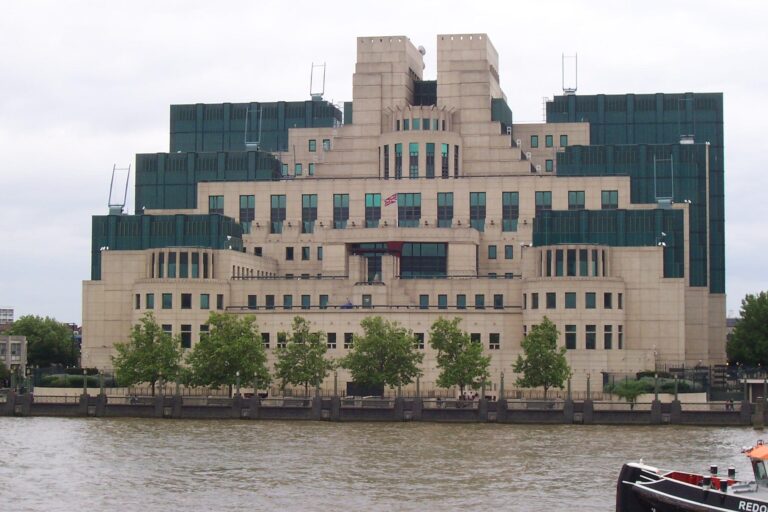The United Kingdom’s intelligence community is reportedly reassessing its reliance on United States intelligence as tensions with Iran escalate. According to Intelligence Online, London is increasingly concerned about the accuracy and timeliness of intelligence shared by Washington amid the growing regional threat posed by Tehran. This move signals a potential shift in the UK’s strategic approach to managing intelligence partnerships, as officials seek to bolster national security independent of American input in a rapidly evolving geopolitical landscape.
Spotlight United Kingdom London examines growing concerns over reliance on US intelligence
Skepticism is mounting within London’s intelligence circles over the kingdom’s extensive reliance on United States intelligence networks, especially as tensions surrounding Iran continue to escalate. Officials express concern that this dependence could leave the UK vulnerable, restricting its ability to act autonomously in its national security efforts. Emphasis is now shifting towards enhancing the country’s independent intelligence capabilities, aiming to reduce potential gaps caused by delayed or filtered information.
Key areas under review include:
- Investment in domestic signals intelligence (SIGINT) infrastructure
- Strengthening bilateral intelligence-sharing agreements beyond US partnerships
- Developing rapid analytical frameworks for emerging threats in the Middle East
| Aspect | Current Status | Proposed Action |
|---|---|---|
| Data Sharing | Predominantly via US agencies | Expand to EU and regional partners |
| Technological Assets | Limited in some key areas | Upgrade with domestic funding |
| Analytical Independence | Reliant on US interpretation | Train UK analysts for autonomous assessments |
Implications of Iran threat prompt call for enhanced British independent intelligence capabilities
Heightened tensions with Iran have sharpened focus within British intelligence circles on the pressing need to reduce reliance on external data sources, particularly those provided by the United States. Recent incidents involving espionage and regional destabilization efforts underscore vulnerabilities in the UK’s current intelligence framework, prompting calls among policymakers and security experts for a more robust, self-reliant approach. This strategic recalibration aims to not only safeguard national security interests but also to ensure sovereign decision-making capability in an increasingly volatile geopolitical landscape.
Key areas targeted for accelerated development include:
- Advanced signals intelligence (SIGINT) infrastructure to intercept and analyze communications independently.
- Enhanced human intelligence (HUMINT) networks operating within critical regions.
- Integration of cyber intelligence tools designed to detect and neutralize emerging digital threats.
Such initiatives are set to be supported by increased investment in cutting-edge technology and growing inter-agency cooperation within the UK’s intelligence community. The table below highlights the current and proposed capability upgrades aimed at bridging existing intelligence gaps:
| Capability | Current Status | Proposed Enhancement |
|---|---|---|
| SIGINT Stations | 6 operational sites | Expand to 10 with automated AI analysis |
| HUMINT Agents | Limited presence in Middle East | Increase deployment by 40% |
| Cyber Defense Units | 3 specialized teams | Form a centralized 8-team cyber command |
Experts recommend strengthening domestic intelligence networks and fostering diverse international partnerships
In light of escalating tensions with Iran and growing concerns over over-reliance on transatlantic intelligence sharing, British security analysts urge a recalibration of the United Kingdom’s intelligence strategy. Emphasis is placed on fortifying domestic intelligence operations through increased investment in cutting-edge technology, enhanced inter-agency coordination, and stronger legislative frameworks enabling rapid information exchange. Experts argue that a more resilient internal network will not only reduce vulnerabilities but also enable the UK to act swiftly and autonomously in high-stakes scenarios.
Simultaneously, intelligence specialists advocate for broadening the UK’s global intelligence alliances beyond traditional Western partners. By cultivating relationships with a diverse range of countries-including Middle Eastern, Asian, and African intelligence agencies-the UK can acquire more nuanced regional insights and foster multilayered cooperative mechanisms. Key benefits of such diversified partnerships include:
- Access to unique regional sources and human intelligence
- Shared technological innovations and counterintelligence tactics
- Joint training programs enhancing operational interoperability
- More balanced geopolitical perspectives reducing over-dependence
| Focus Area | Proposed Enhancement | Expected Outcome |
|---|---|---|
| Domestic Surveillance | AI-driven analytics and data fusion centers | Improved threat detection and decision-making speed |
| International Alliances | New bilateral and multilateral intelligence agreements | Expanded information channels and joint counterterrorism |
| Legal Framework | Updated privacy laws supporting intelligence sharing | Better legal clarity and operational flexibility |
In Summary
As the evolving security landscape in the Middle East continues to pose complex challenges, London’s reassessment of its reliance on U.S. intelligence signals a pivotal shift in the United Kingdom’s strategic approach. Spotlight UK’s scrutiny highlights broader questions about autonomy, trust, and the future of international intelligence cooperation amid heightened tensions with Iran. How London navigates this recalibration will be critical not only for its national security but also for the cohesion of Western intelligence alliances moving forward.




